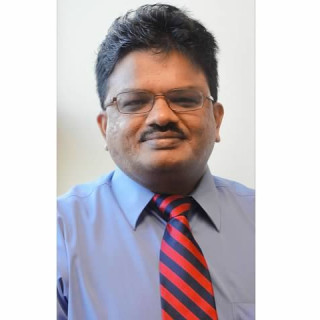
“Doubt is not a pleasant condition, but certainty is absurd.” So said the French philosopher Voltaire. Au contraire, Voltaire! The modern reality is the overwhelming majority of humanity lacks the mental sophistication of a timeless philosopher and finds certainty to be a pleasant condition and uncertainty to be absurd and revoltingly unpleasant.
Patients expect certainty from the healthcare system and are often unprepared to realize the pervasiveness of uncertainty in medicine. You can’t blame the stakeholders in our healthcare system, especially the lay public, if they expect and demand certainty from the bafflingly complex, mind-bogglingly expensive, what-to-them-looks-like medical industrial complex. They see sky-high health insurance premiums, co-pays, undergoing tests through gadgets which look like they are from science fiction, enduring arduous diagnostic tests, not to mention being seen by highly-paid doctors often in gleaming big buildings. And at the end, no definite answers?! Something must be wrong here!
Alas, as clinicians, we know how much of our daily clinical practice is plagued with uncertainty — both in diagnosis and in therapy. The more we know, it seems the less we know. How do providers cope? Excessive ordering of diagnostic tests is one crutch to hold on to. Consulting as many specialists as possible is another.
“The core predicament of medicine — the thing that makes being a patient so wrenching, being a doctor so difficult, and being a part of society that pays the bills they run up so vexing — is uncertainty. Medicine’s ground state is uncertainty. And wisdom — for both the patients and doctors — is defined by how one copes with it.”
_ Atul Gawande, Complications: A Surgeon’s Notes on an Imperfect Science.
Popular medical author Dr. Atul Gawande, in his book “Complications,” brings to focus the extent of uncertainties in Medicine by recounting his encounter with a rare diagnosis, necrotizing fasciitis, a lethal infection, in a young woman. In the chapter titled (in Sherlock Holmesian fashion) “The Case of the Red Leg”, the author, then a surgical resident, is called to see a young woman’s left leg which looks beefy and angry red. He quickly thinks about the possibility of the eventually-correct diagnosis, but he feels guilty about considering a Zebra diagnosis rather than the mundane diagnosis of cellulitis. He calls his supervising general surgery attending. After that, an expert plastic surgeon and an expert pathologist get involved, who, after performing an urgent biopsy and looking at the slides, announces, “I do not know. I am not sure I could clench the diagnosis.” Well, the surgeons decide to open up the patient’s leg. By golly! She indeed had necrotizing fasciitis and underwent lifesaving surgical and medical interventions.
In my specialty, rheumatology, it is not an exaggeration to say uncertainty is the rule rather than the exception. While reading Dr. Gawande’s above anecdote, I realized I have been underestimating the extent of uncertainty in other specialties — especially in pathology and radiology! What’s the way forward for all of us? We should not be embarrassed or feel inadequate when we are faced with uncertainty. We should not feel timid when we explain uncertainty to the patients. Our medical education system may do well not to impart trainees with a false sense of certainty. Trainees should be taught uncertainty. In the multiple-choice question format, for example, we are expected to select the one best answer. Yet, in real life we often encounter multiple “best” choices.
To become better healers, we all must accept uncertainty, respect the uncertainty faced by our colleagues in other specialties, and be skillful and articulate educators of uncertainty to the patients. We, the healers, must first have the humility and courage to accept uncertainties to ourselves and our colleagues. Only then can we skillfully explain the uncertainty to our patients and strive to help them cope with their illnesses.
Dr. Siva is the director of the rheumatology fellowship training program at the University of Missouri School of Medicine at Columbia where he has been a faculty since 2005. He is a 2017–2018 Doximity Fellow.







